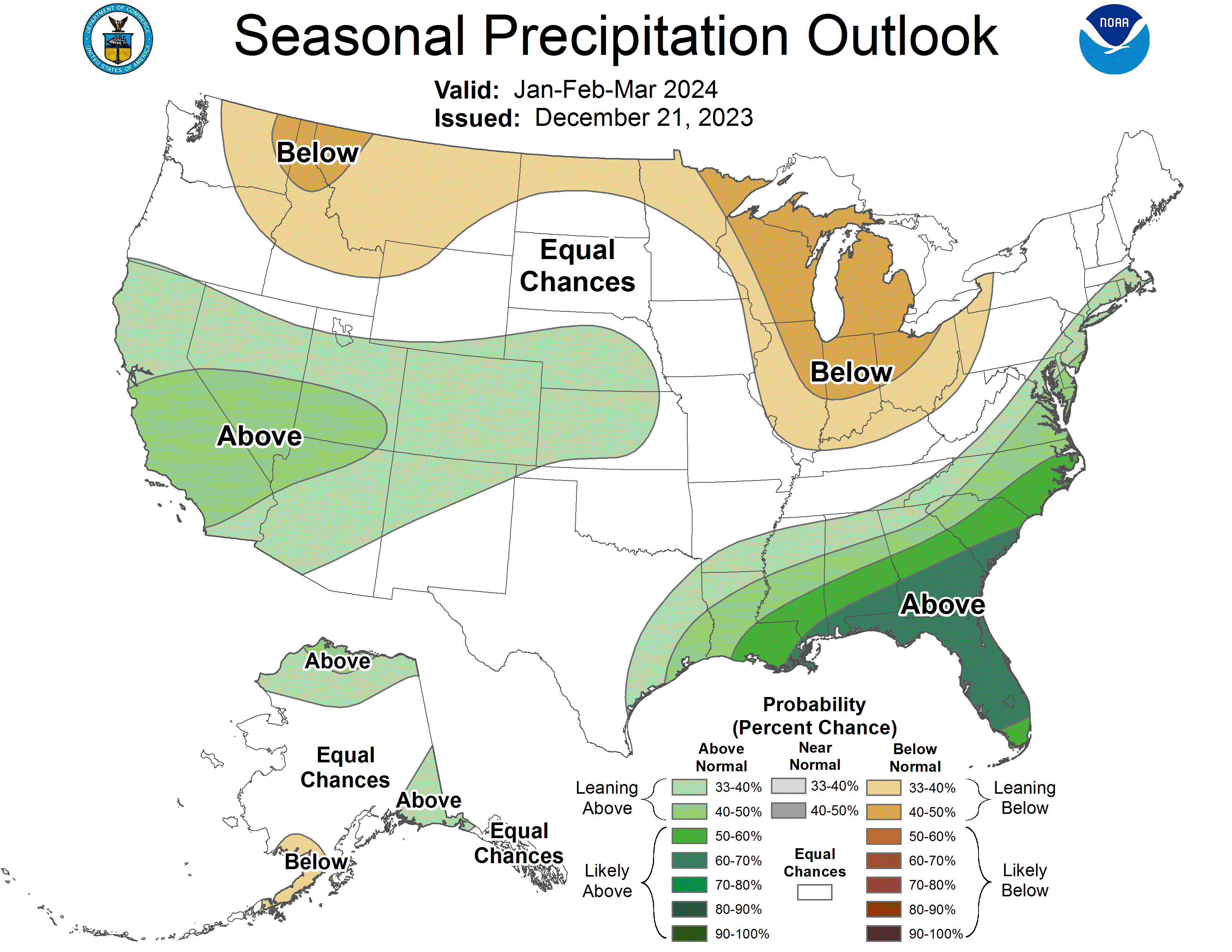After enduring a soggy Christmas, parts of Georgia could see more rain than usual to start the New Year, too, according to a new federal forecast.
The outlook released last week by the National Oceanic and Atmospheric Administration (NOAA) shows Georgia will likely be wetter than normal during the first three months of 2024.
The greatest odds in favor of more precipitation are in the middle and southern parts of the state, at between 60% and 70%. Farther north, the chances drop to around 33% to 50%. Temperatures across the state, meanwhile, are expected to be roughly normal during the first quarter of the year. The outlook did not address chances of wintry precipitation for the Peach State.
Credit: NOAA
Credit: NOAA
The forecast for a wet rest of winter is driven mainly by a strong El Niño climate pattern.
El Niño is characterized by warmer-than-normal temperatures in the tropical Pacific Ocean, while La Niña is driven by a cooling of those same waters. The phenomena influence weather across the globe, but their effects are strongest in winter.
El Niño typically brings cooler and wetter than normal conditions to the southern U.S., with higher temperatures and less rain or snow than usual to the northern half of the country. According to NOAA, the current El Niño could rank as one of the strongest since recordkeeping began.
Rainy winters are normal in Georgia. Winter is typically the state’s wettest season. But any extra rainfall that materializes would help boost soil moisture for farmers ahead of the spring growing season and recharge reservoirs.
More rain would be especially welcome in the northwestern and southwestern corners of the state, which saw pockets of extreme and exceptional drought develop during a nearly rain-less fall. The dry conditions have already eased some in recent weeks, after several rainmakers delivered moisture to affected areas, but NOAA’s Dec. 21 forecast calls for drought to improve or disappear entirely across Georgia by the end of March.
With just a few days left in 2023, it is likely that this year will go down as one of the hottest in Georgia’s recorded history. According to NOAA data, the first 11 months of this year have been the 4th-warmest such period since recordkeeping began in 1895, with temperatures 2.2 degrees above the 20th century average.
Globally, 2023 will almost certainly rank as Earth’s hottest year on record, owing largely to the effects of human-caused climate change.
A note of disclosure
This coverage is supported by a partnership with 1Earth Fund, the Kendeda Fund and Journalism Funding Partners. You can learn more and support our climate reporting by donating at ajc.com/donate/climate/
About the Author
Keep Reading
The Latest
Featured




